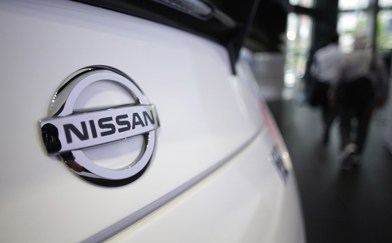The boss of New Zealand’s number one car distributor says the Clean Car Discount (CCD) has been a “fail”. He warns there’s a major revamp coming - which might not be good news for customers with cars on backorder, who are expecting rebates.
Speaking at a media conference last week, Toyota chief executive officer Neeraj Lala (above) said the CCD is struggling and can’t carry on in its present form: “It doesn’t have enough money, it’s as simple as that. It’s not sustainable. We’re going to see some changes and they will be gift-wrapped in a package that will be a surprise.”
The CCD is the “feebate” scheme introduced by the government in 2021 that gives rebates to purchasers of low-emissions cars (up to $8625 for a pure-electric vehicle) and applies fines to higher-emitting vehicles (capped at $5175). The idea is that the fines fund the rebates.
Lala says the government has miscalculated both the number of cars bringing funds into the scheme and the massive increase in sales of battery electric vehicles (BEVs) in the last 18 months, partly thanks to affordable new models like the MG ZS EV and BYD Atto 3 that are eligible for the maximum rebate.
“The Discount, you’ll hear, has been really successful,” says Lala. “So successful that it’s about to undergo a major redesign. Now, [imagine] the boss presenting a massively successful strategy to board members and telling them it needs a rewrite. That’s the definition of a fail.”
Lala says he doesn’t know the details of the update. But he’s fully keyed into government affairs (a member of the Sustainable Business Network and Climate Leaders Coalition) and referenced his attendance at a recent conference with Minister of Transport Michael Wood and Climate Change Minister James Shaw, where potential changes were acknowledged.
Lala does have some firm ideas on what the revamp might be, though: “Their options are limited. In an election year, you don’t want to keep hammering farmers, because you’ll need some of their votes. So how do you win their votes? Give the trucks an exemption.
“But then no money comes in, so what do we do now? Take all the low-volume, low-emission ICE and hybrids out of this thing and just focus on the pure-electric. [Which is how the CCD started in 2021].
“You don’t have to be a rocket scientist to know that those are probably going to be their levers, and the solution will probably be somewhere in the middle.”
Lala says Toyota NZ has also connected with the government’s advisory group about the possible backlash from removing the rebate when so many customers have vehicles on backorder that may not arrive until after a CCD update. Many who have purchased a vehicle expecting a cashback may find their car is no longer eligible when it finally arrives in the country to be registered. Some Toyota NZ models aren’t deliverable until 2024, for example.
“There will be a customer management issue here that we will be the victims of,” says Lala, reminding that the CCD is deal between the customer and the government, not the car seller.
Lala says he’s “not bagging the initiative” generally, and acknowledges it has accelerated the uptake of electrified vehicles. But he’s not a fan of the government’s attitude that BEVs are the “silver bullet” to decarbonise the new-vehicle sector.
During the media conference, Lala did openly praise the local BYD distributor for bringing in a quality BEV product, the Atto 3 (above), at an affordable price: “We’ve gone from the worst to the best in terms of EV adoption. That hasn’t just happened because of the CCD; it’s because BYD has done a really good job of bringing in product in volume that’s going to appeal to the market. [BYD partners with Toyota in China on the bZ3 EV, by the way.]
“But it’s harpooning the fund that could be used for other things.”
Two of those things could be the Clean Car Upgrade and Waka Aronui car-sharing scheme, both of which the government has now withdrawn support for.
In fact, Lala says Toyota NZ is more frustrated over these than anything the CCD or Clean Car Standard (which is a whole other story) is throwing at it: “The Clean Car Upgrade concept was going to be a rock star. That’s for a customer who can’t afford to buy a low emissions car, but all of a sudden there's a $3500 rebate just for driving a shitter to the dealership.
“We need to get that car off the road. And all of a sudden Toyota Financial Services, who would probably never provide finance to that person, has a 30-35 per cent deposit.
“Decarbonisation can occur if the next new car is… newer. But to do that, you have to get rid of the dogs off the road.”
Waka Aronui is a community car-leasing coalition launched by Akina Foundation last year in Favona, South Auckland, that gave 20 local families the use of Corolla hybrid wagons for a set fee of $95 per week (covering everything except petrol).
Funding was initially provided by Toyota NZ, the Tindall Foundation, the Ministry of Business, Innovation and Employment, Waka Kotahi and Auckland Council. But the government component fell victim to a policy purge by newly appointed Prime Minister Chris Hipkins, in March.
“The social impact of that scheme has been massive,” says Lala. “Petty crime occurs when you can’t get your kids to after-school football practice; studies prove that mobility unlocks a whole lot of opportunities for community.
“It’s made a huge difference in South Auckland and it was on the brink of being rolled out to other areas [with another 200 cars], but it’s been pulled.”
The pilot scheme will carry on, says Lala, with continuing support from the Tindall Foundation. But plans for large-scale expansion have been dropped.
“The impact of this stuff is way more significant than somebody buying a $50k EV getting a $8625 rebate. The person buying that car would probably have bought it anyway.”





